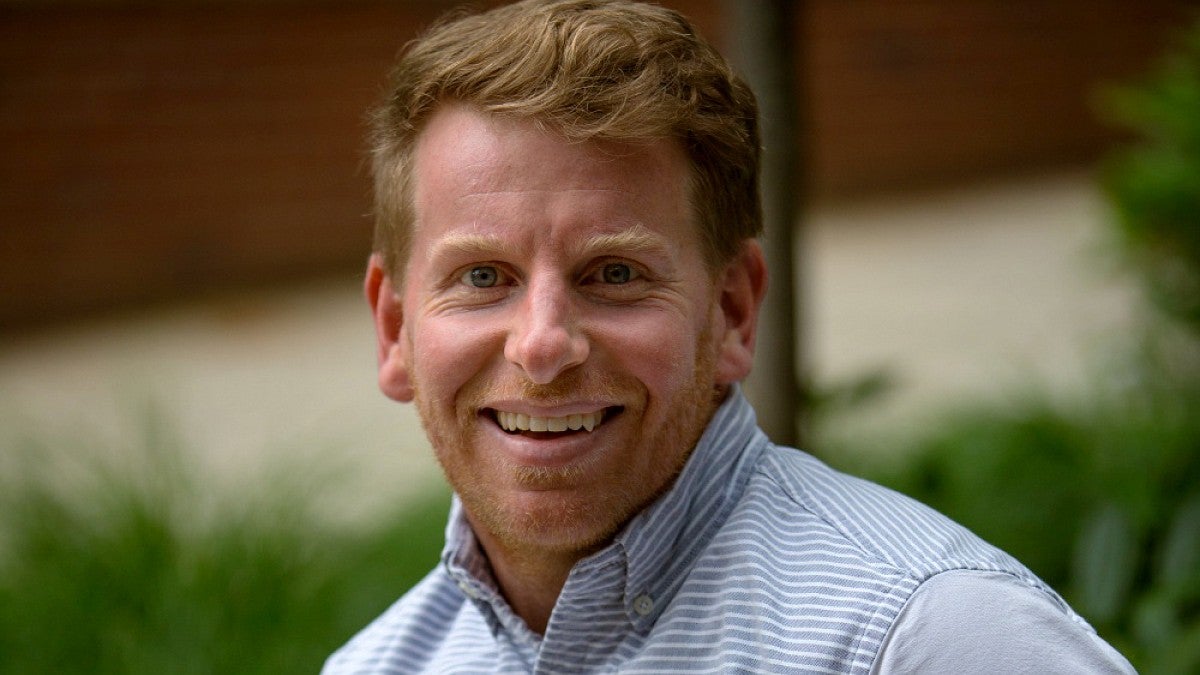It’s no secret that today’s college students spend a lot of time online. When they’re not studying, they can often be found posting on social media, online shopping, streaming music or binge-watching videos.
What isn’t known — yet — is how all that screen time is affecting their psyches.
It’s a question that UO School of Journalism and Communication doctoral student Matt Pittman intends to answer.
“The answer to the questions, ‘Are social media good?’ or ‘Is binge watching bad?’ is, of course, that it depends,” said Pittman, who has held the inaugural Anderson Family Graduate Fellowship for the past two years as a result of his work on media ethics.
“As with many aspects of digital technology, there is an immediacy that is satisfying,” he said. “We can now get more of what we think we want at the very moment we think we want it. This can be problematic if we let ourselves get programmed to behave in certain ways, or helpful if we let it supplement our ‘real-world’ relationships and activities.”
Pittman’s research at the school, which focuses not only social media and binge-watching but also ethics and consumer well-being, caught the attention of the Oxford Internet Institute, an academic center at the University of Oxford, U.K., dedicated to examining the societal implications of the internet. He was recently accepted into the institute’s prestigious annual two-week summer program, which invites outstanding doctoral students from all over the world to study and discuss internet-related issues with researchers from many disciplines.
Pittman said he owes much of his acceptance into the Oxford program to his advisor, advertising professor Kim Sheehan.
“Since his work is interdisciplinary, the opportunity to share ideas with scholars from a variety of disciplines will only serve to strengthen his work,” Sheehan said.
In fact, the opportunity to gain unique perspectives on his research from peers in other fields is what enticed Pittman to apply to the program in the first place.
“The nature of the program is very appealing in that it allows researchers from different disciplines — sociology, communication and media studies, philosophy — to come together, all sharing the general common goal of better understanding effects, impact or ramifications of our increasingly digital world,” he said.
Pittman, who plans to complete his doctorate next spring, wants to use his time at the Oxford Internet Institute to work on his dissertation, “Phoneliness: Examining the Relationships Between Mobile Social Media and Human Connection,” which investigates how college students communicate with each other and how their use of media outlets may be causing feelings of loneliness.
“I want to answer the question: How is it that loneliness persists, even — and especially — in societies where mobile phones give us more access to each other than ever before?” said Pittman, whose dissertation research next year will be funded in part by the Lorry I. Lokey Journalism Scholarship.
“I’ll be looking at how and how often college students spend time using various social media to connect to their strong ties (close friends) and weak ties (acquaintances),” he said. “I think there might be a state of ‘phoneliness’ that exists for a person who feels lonely and uses social media to make the feeling go away, but in effect is only treating a symptom rather than the root cause. But I also think certain social media might have the potential to authentically connect us with others, and I want to explore when and how that might happen.”
Pittman hopes to leave Oxford with new relationships with colleagues from around the world as well as a better understanding of digital research.
“Meeting new people, hearing what they are researching, how they are going about it and what they hope to accomplish — those things always energize, sharpen and refine my own research,” said Pittman. “This is a fun and fascinating time to study how technology is affecting everyday life, and I love what I get to do.”
—By Nikki Kesaris (Class of 2018) and Andra Brichacek, School of Journalism and Communication


